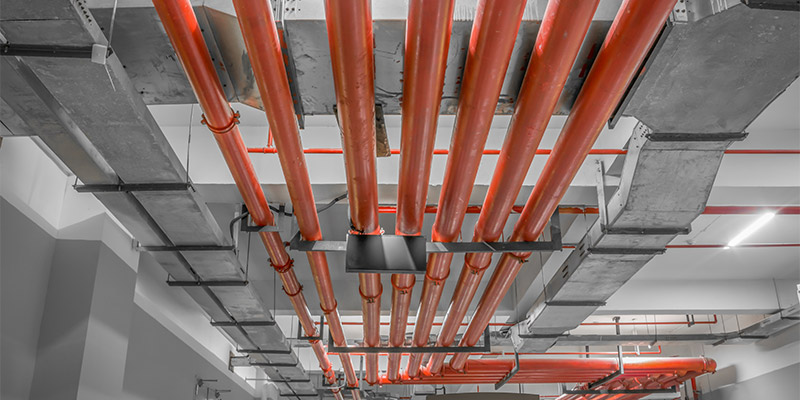
What is the Importance of HVAC Insulation?
HVAC insulation, which stands for Heating, Ventilation and Air Conditioning, plays a major role in energy usage for buildings and businesses alike. Therefore, for both industrial and commercial properties, it is highly important to make sure that you have effective HVAC insulation installed. The duct systems of a building play an essential role in regards to heating and cooling, all of which is transferred through your air vents and ducts.
Insulating HVAC systems consist of ducts, vents, piping and more. Each area of the system provides an opportunity to effectively insulate to benefit the property, whether that may be thermal insulation, sound proofing, fire resistance insulation or much more. Whether your building is used for a work environment, hosting events or more, there are many reasons as to why you need your HVAC systems insulated.
What are the Benefits of HVAC Insulation?
1. Thermal Insulation
Thermal insulation offers protection, cost effectiveness and sustainability to your property and your ducts/piping. The main goal of a thermally insulated HVAC system is to reduce the amount of heat loss and heat gain, which in turn saves energy, through the ducts. For example, if your duct is not insulated then it could lead to cold air travelling through it and gaining temperature, this then causes condensation, water dripping and opens up a whole world of issues.
Thermal insulation also has benefits for the piping of your HVAC system. For cold lines, the insulation helps prevent air leakage and mitigates the risk of condensation of moisture on to your pipes. For suction lines, thermal insulation prevents the loss of capacity or sweating due to heat gain, the insulation will regulate temperatures, if there is heat gain, it adds an extra load on to the condenser.
2. Save Money
When you have your HVAC systems insulated, you can also be expected to see a return on your investment and save money on your business’s energy bills every month. Incredibly, the HVAC component of your building has a range of overall energy use between 30%-60%. This is a significant amount for one system to have in a building, highlighting its importance. Therefore, by reducing the overall energy usage of your piping, ductwork and ventilation, you can expect to see lower energy bills. Essentially, if your HVAC system is effectively insulated, it will consume less energy and save you money on your energy bills.
3. Soundproofing
Ducts, vents and piping can be extremely noisy, which may be unwanted especially if the property is entertaining guests, a workplace or used for various other reasons. Operational sound can easily travel via the HVAC components, creating an uncomfortable environment. However, with sufficient soundproofing insulation, you can significantly reduce the amount of sound that is transferred through the ducts, deadening out pipe noises and other unwanted sounds.
4. Non-Combustible Insulation
Fire resistant insulation is another key benefit you can have when insulating your heating, ventilation, and air conditioning systems. It is crucial for commercial and industrial buildings to have significant fire-resistant insulation and to meet regulations for the safety of the internal components. Luckily, there are many available insulation types that can offer resistance to fire, to help prevent the passing of fire and to resist fire, in some cases, up to 4 hours. ROCKWOOL offer a great range of fire resistance insulation products specific for HVAC systems that can provide your property with the correct insulation needed.
5. Prevents Condensation
Briefly touched on before, by installing sufficient insulation in your HVAC system, you mitigate the risks of condensation building up via the transferring of cool air and warm areas. If condensation builds up in your ductwork the moisture created can lead to mould growth and unwanted issues. There are certain types of insulation that can prevent this all together.


